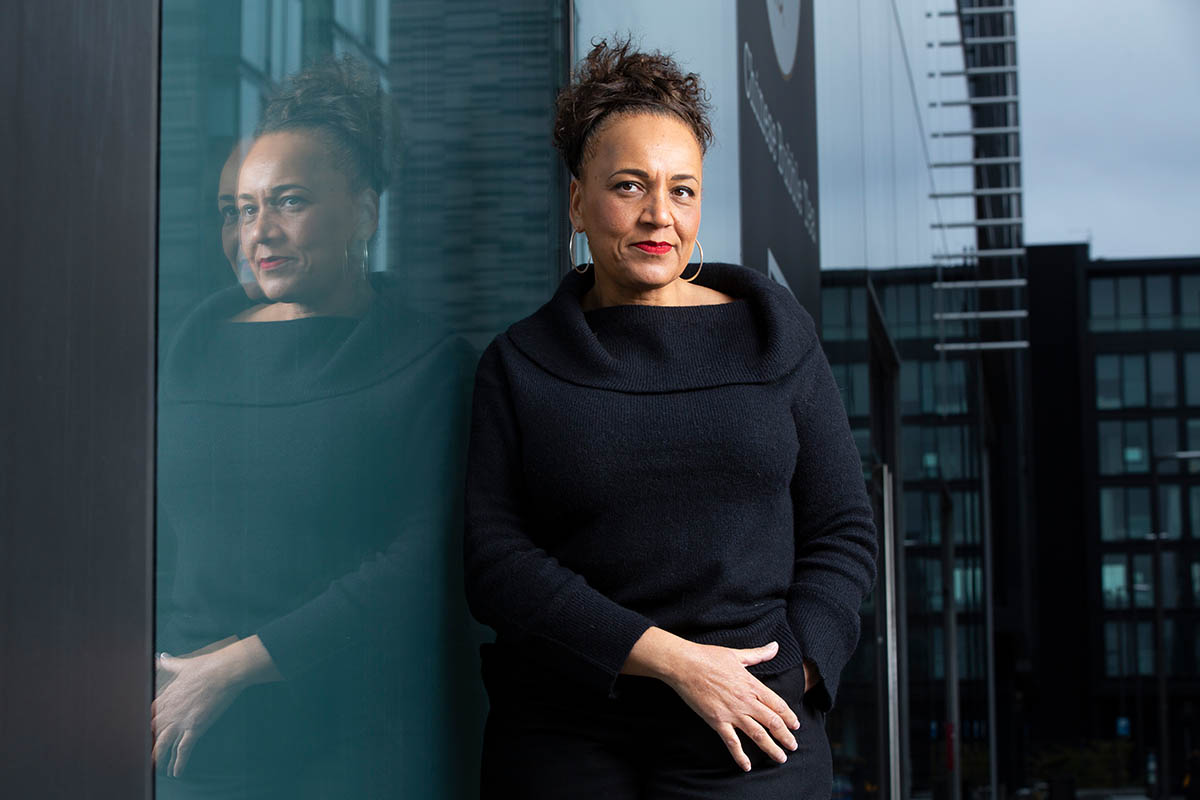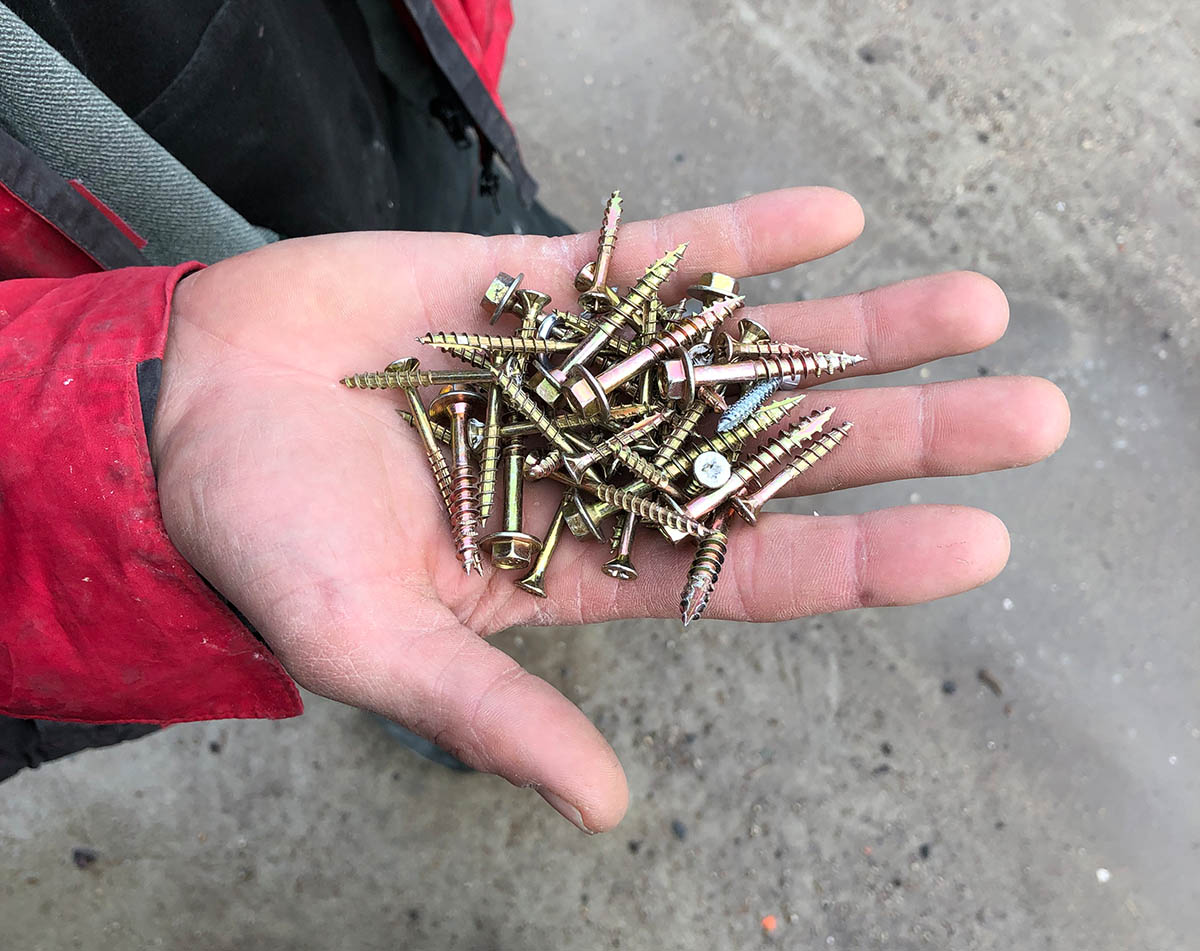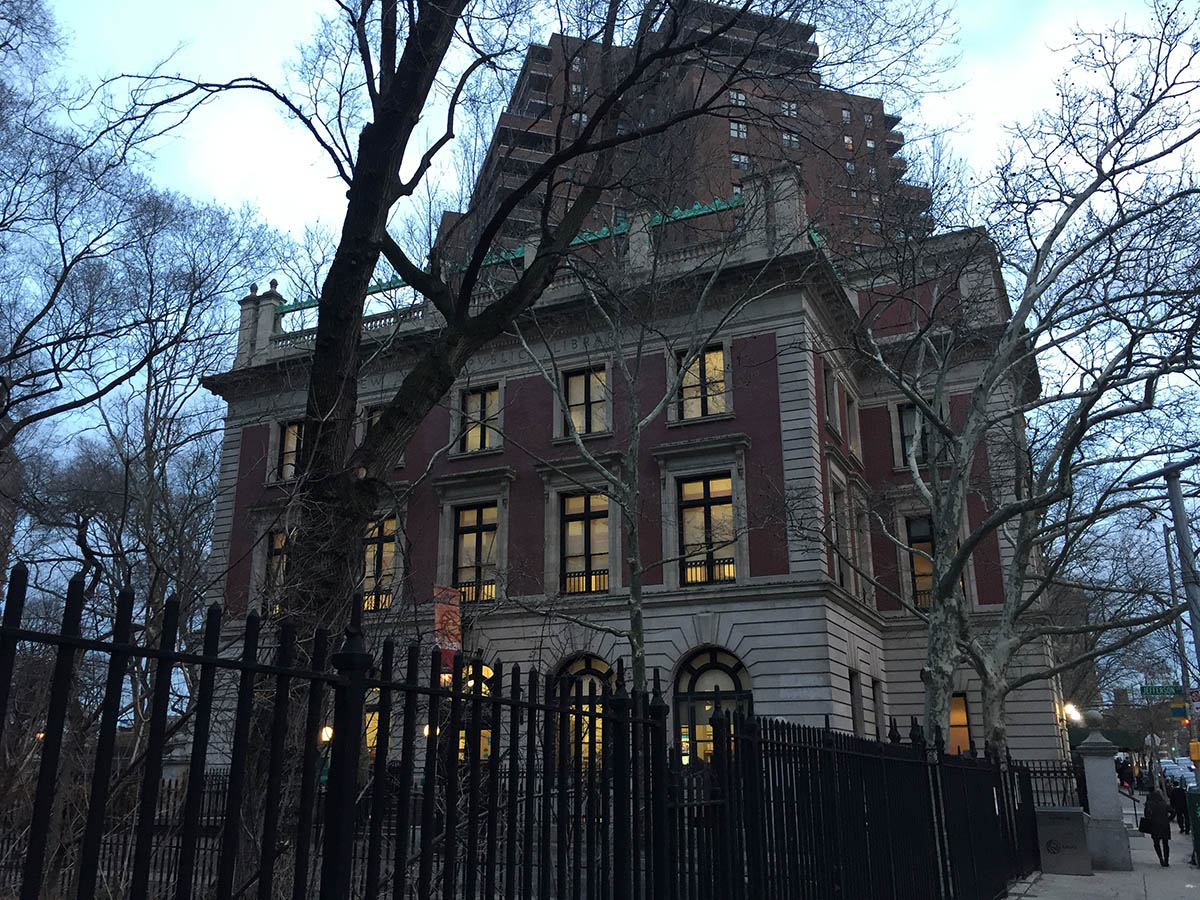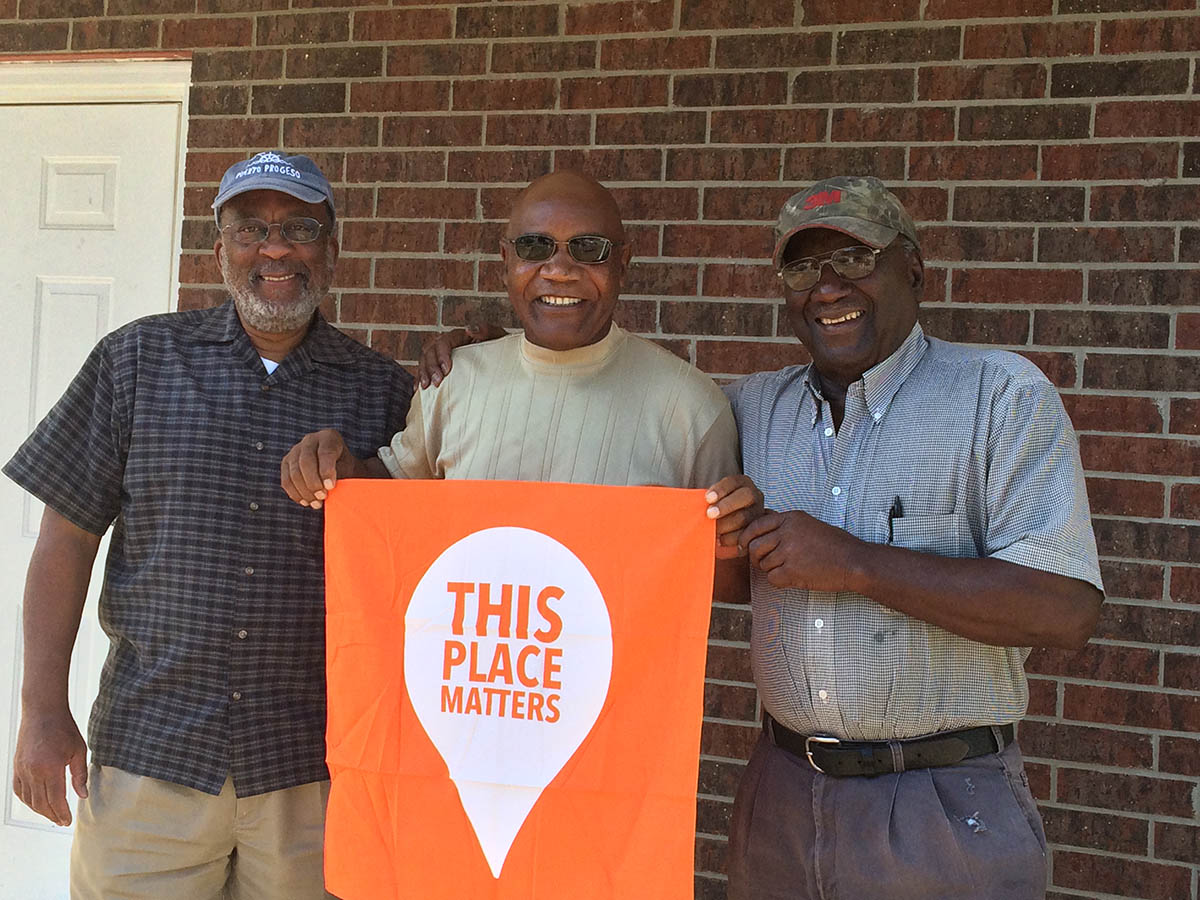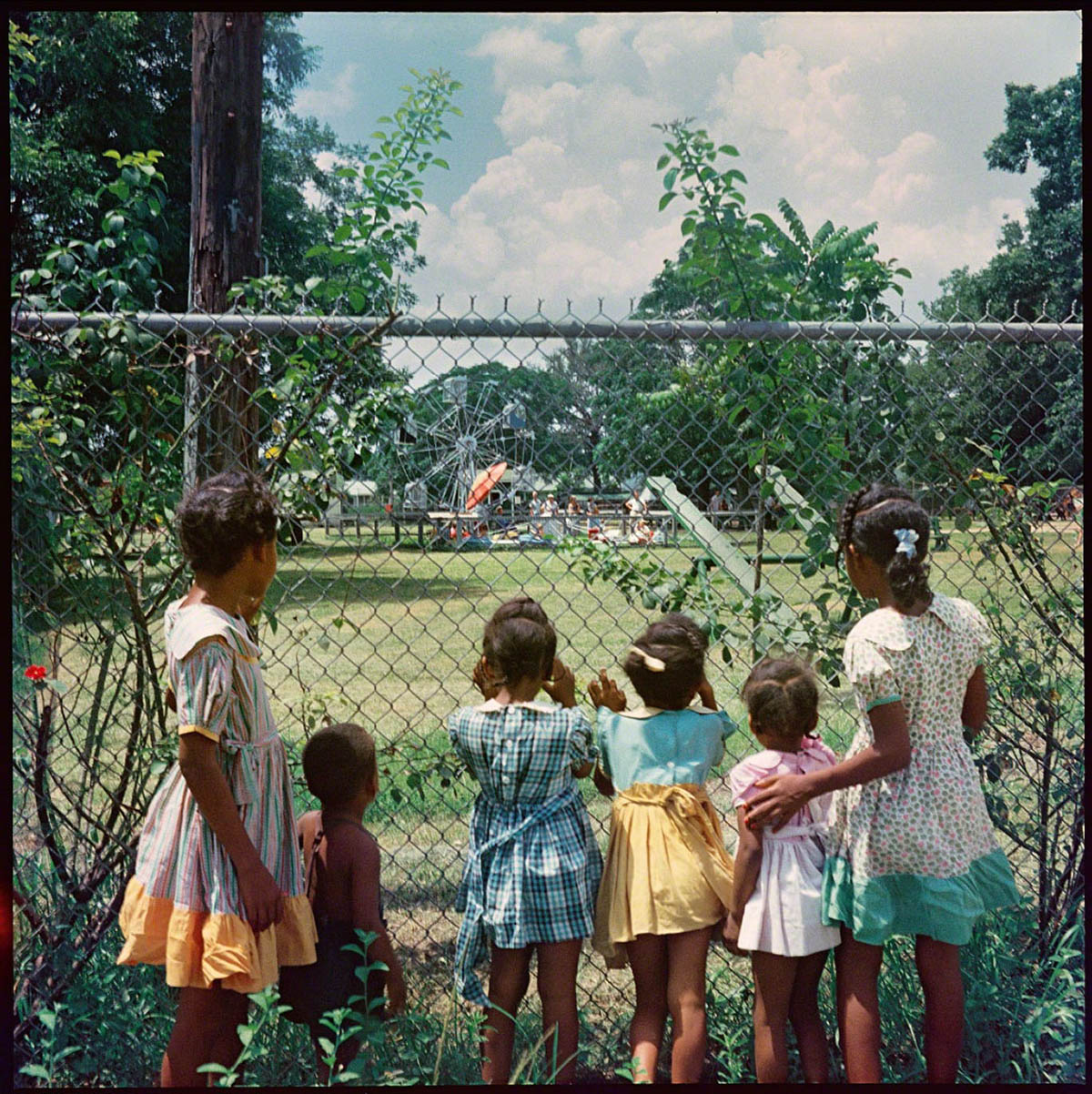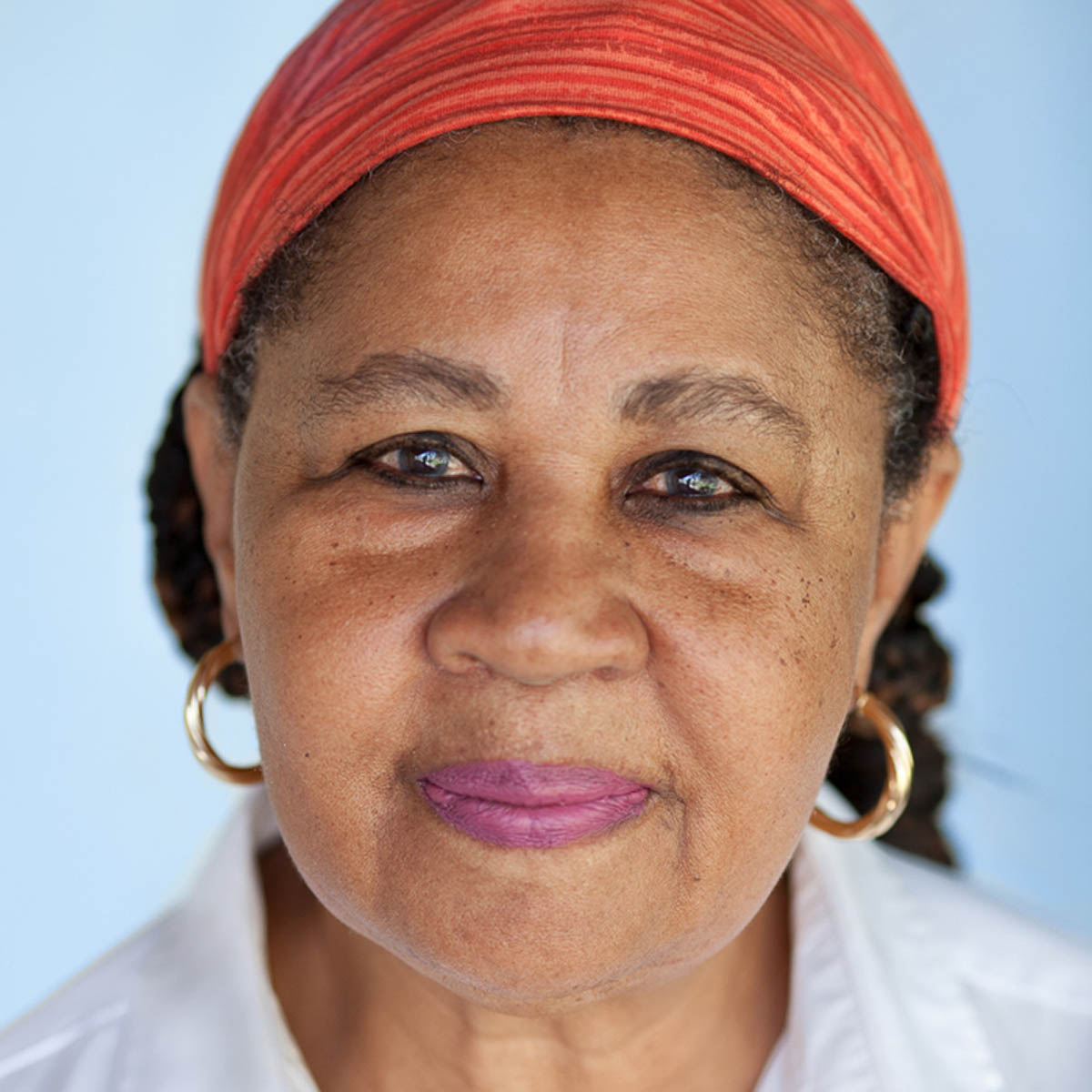Lesley Lokko
| Event Information |
|---|
| All are invited to watch and participate online in this program by tuning into this page at the noted start time. No pre-registration is required. Online audience members will be able to submit questions throughout the event using Vimeo’s Q&A function. If you would like to submit questions for the speaker in advance of the event, please click here.
Harvard ID holders are also welcome to attend programs in person, except where an event is listed as online only. Live captioning will be provided during this event livestream. Learn more about accessibility services at public programs. |
This event recording is also available to watch with audio description .
Event Description
The Senior Loeb Scholars program invites prominent individuals whose expertise is outside the typical disciplines of the GSD or whose practice displays a unique focus. Scholars are welcomed for a short-term residency at the School, during which they present a public lecture and engage directly with GSD students, faculty, staff, researchers, Loeb Fellows, and others. Since its inception, the program has offered the GSD community opportunities to learn from and be in discourse with visionary designers, scholars, and thought leaders in a uniquely focused context.
Lesley Lokko is the Spring 2022 Senior Loeb Scholar. Lokko joins a cohort of previous Senior Loeb Scholars who include Walter Hood (2021); Bruno Latour (2018-2019); Kenneth Frampton and Silvia Kolbowski (2017-2018); Richard and Ruth Rogers (2016-2017); and David Harvey (2015-2016).
Lokko will be in residence at the GSD on Monday, February 28 and Tuesday, March 1, 2022. She will deliver the annual Senior Loeb Scholar public lecture on Tuesday, March 1 at 6:30 pm ET.
Audience members who attend this event in its entirety may be eligible for continuing education credits from AIA. Please reach out to [email protected] for more information.
Speaker
Lesley Lokko is the founder and director of the African Futures Institute (AFI) in Accra, Ghana, an independent postgraduate school of architecture and public events platform. She was the founder and director of the Graduate School of Architecture, University of Johannesburg (2014—2019) and the Dean of Architecture at The Bernard & Anne Spitzer School of Architecture (2019—2020), CCNY. She is the editor of White Papers, Black Marks: Race, Culture, Architecture (University of Minnesota Press, 2000) and the editor-in-chief of FOLIO: Journal of Contemporary African Architecture , published by the AFI.
In 2004, she made the successful transition from academic to novelist with the publication of her first novel, Sundowners , (Orion, 2004) and has since followed with twelve further bestsellers, which have been translated into fifteen languages. She is currently a founding member of the Council on Urban Initiatives, co-founded by LSE Cities, UN Habitat and UCL Institute for Innovation and Public Purpose; and a Visiting Professor at the Bartlett School of Architecture, UCL. She is a trustee of London-based The Architecture Foundation and has held visiting professorships at the University of Westminster, University of Cape Town, The Cooper Union and the University of Virginia.
In December 2021, she was appointed Curator of Biennale Architettura 2023 of La Biennale di Venezia.
Follow Lesley Lokko on Twitter and Instagram .
Loeb50: Mobility in the Post Pandemic City
Event Description
The COVID-19 pandemic brought dramatic changes to every aspect of urban life, none more than in urban transportation. Lockdowns in March and April 2020 brought travel to a standstill. Some cities have seized on the opportunity to repurpose street space away from cars, enabling a boom in outdoor dining, biking, and walking. It’s shown how much space is consumed by automobile infrastructure and opened the door to a reimagining of urban street space. How many of these changes will remain when the pandemic is tamed? At the same time, transit ridership has plunged, devastating public transportation. Enabled by remote work, residential demand has moved to lower density. What are the consequences for the future viability of cities? Can we steer urban transportation towards the zero emissions future we urgently need? What does it mean for efforts to unwind the legacy of racial discrimination within our transport systems?
Participants
- Seleta Reynolds, General Manager, Los Angeles Department of Transportation
- Dorval Carter, President, Chicago Transit Authority
- Rit Aggarwala, Executive-in-Residence, Closed Loop Partners
- Moderator: Andrew Salzberg, LF ’20, Independent Climate Change & Transportation Consultant
Aude-Line Dulière, “The Turn of the Screw and other short stories on dismantling and reuse”
| Registration Information |
|---|
| The GSD’s Fall 2021 Public Programs are all virtual and require registration. Click here to register for Wheelwright Prize Lecture: Aude-Line Dulière, “The Turn of the Screw and other short stories on dismantling and reuse”. The event will also be live streamed to the GSD’s YouTube page. Only viewers who are attending the lecture via Zoom will be able to submit questions for the Q+A. If you would like to submit questions for the speaker in advance of the event, please click here. Live captioning will be provided during this event. |
Event Description
This lecture presents a collection of stories on the use and reuse of materials across building sites, demolition sites, salvage yards, quarries, film sets, and other out-of-the-way locations.
Together, they offer glimpses of the material practices at play in multiple contexts, from the skill-rich but frantically energy-intensive movie industry to the slower, less agile building industry. The materials — and the expertise of the craftswomen and craftsmen that shape them — are the protagonists in these stories.
With destinations such as Bry-sur-Marne, Lasham, Gond-Pontouvre, and Fót, this will be a journey across suburban and hinterland ecosystems where the production, sourcing, construction and disposal of film sets has been pushed to the outskirts.
Horror stories of downcycling dead ends, nonfiction financial and carbon calculations, romantic tales of perpetual recycling, fables of pastiche and patina, green-washing propaganda, oral histories of low-tech solutions, and scripts for industrialised shredding of materials: this anthology feeds myriad anthropological perspectives, and helps tune us into our (damaged) relationship to resources.
This lecture asks: How can we create space for material after-life processes, where demolition only happens as a last resort, downcycling gives way to a blossoming salvage and reuse industry, and dismantling becomes a craft as valuable as carpentry and sculpting? How can we bring more of these stories of unscrewing from the periphery to the front row?
Speaker
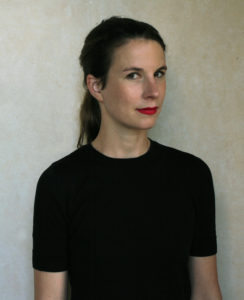
Aude-Line Dulière is an architect, researcher, and educator. She runs a studio and a technical course at the Architectural Association
in London with a focus on material reuse. She manages academic, cultural, and built projects that consider our relationship to resources, labor, and supply systems. Since 2016, she collaborates with the Brussels-based cooperative Rotor
.
She has been a visiting professor at the KADK in Copenhagen and also taught at La Cambre ENSAV in Brussels. She is a registered architect, member of the British Film Design Guild, recipient of the Harvard Wheelwright Prize, and a board member of the Brussels-based space ‘La Loge’ dedicated to contemporary art, architecture, and theory. She has been invited to collaborate with institutions on exhibitions including the V&A in London, M – Museum in Leuven, and Het Nieuwe Instituut in Rotterdam.
Aude-Line studied in Brussels at Sint-Lucas (KU Leuven), holds a Master of Architecture degree from the Harvard Graduate School of Design, and worked at David Chipperfield Architects between 2010-15.
Jade Kake, “Indigenous Urbanism”
| Registration Information |
|---|
| The GSD’s Fall 2021 Public Programs are all virtual and require registration.
The event will also be live streamed to the Harvard GSD YouTube page. Only viewers who are attending the lecture via Zoom will be able to submit questions for the Q+A. If you would like to submit questions for the speaker in advance of the event, please click here.
Live captioning will be provided during this event.
|
Event Description
Jade Kake (Ngāpuhi, Te Arawa, Te Whakatōhea) leads a small team at Matakohe Architecture + Urbanism, a kaupapa Māori design studio based in Whangārei in the Te Tai Tokerau region of Aotearoa New Zealand. The architectural department of the studio is focused on working primarily with Māori community clients on their papakāinga, marae, commercial and community projects, whilst the pūrākau (culture narrative) integration strand focuses on working to facilitate meaningful hapū participation in the design of major civic, commercial and education projects within their rohe. Matakohe are also involved in cultural landscape research and the development of digital tools. In the talk, Jade will present a number of recent projects, as well as reflecting on the philosophy behind Matakohe and approach to practice.
After Jade’s lecture, she will be joined in conversation by Grant Fahlgren, Elyjana Roach and Zoe Toledo from the Harvard Indigenous Design Collective and by Dan D’Oca, GSD Assistant Professor in Practice of Urban Planning.
This event is organized in partnership with the Harvard Indigenous Design Collective .
Speaker
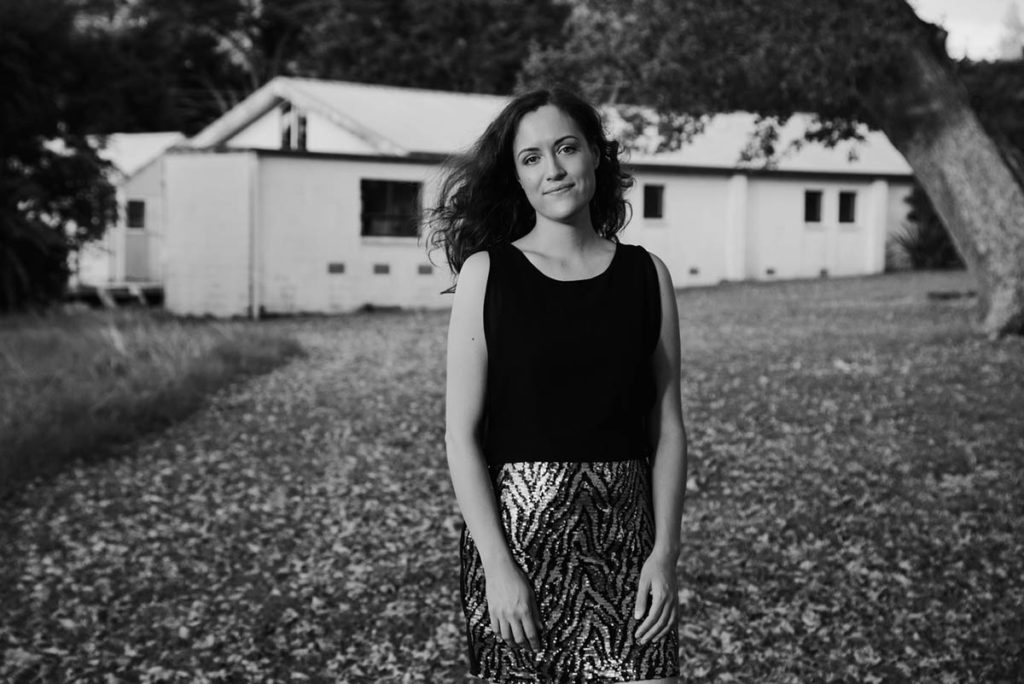
Jade Kake was born on Bundjalung Country, and received her training in architecture at the University of Queensland and UNITEC Institute of Technology in Auckland. Of Māori and Dutch descent, her tribal affiliations are Ngāpuhi, Te Whakatōhea and Te Arawa. She leads a small team at Matakohe
Architecture and Urbanism, a Whangārei-based design studio which she founded in mid-2018. Matakohe works with Māori organisations to progress their multi-residential, community and commercial projects, and with mana whenua (local tribal) groups to express their values, aspirations and narratives in the design of civic, commercial and education projects within their rohe (tribal area).
In 2018, she hosted and produced Indigenous Urbanism
, a podcast about the spaces we inhabit, and the community drivers and practitioners who are shaping these environments and decolonising through design. She has written for a variety of housing and architecture magazines and contributed chapters to several books on architecture and urbanism.
Follow Jade Kake on Twitter and Instagram.
Eric Klinenberg, “Palaces for the People: How Social Infrastructure Can Help Fight Inequality, Polarization, and the Decline of Civic Life”
| Registration Information |
|---|
| The GSD’s Fall 2021 Public Programs are all virtual and require registration.
The event will also be live streamed to the GSD’s YouTube page. Only viewers who are attending the lecture via Zoom will be able to submit questions for the Q+A. If you would like to submit questions for the speaker in advance of the event, please click here.
Live captioning will be provided during this event.
|
Event Description
The future of democratic societies rests not simply on shared values but on shared spaces: the libraries, childcare centers, and parks where crucial connections are formed. Drawing on extensive sociological research, Klinenberg claims that “social infrastructure,” which he defines as the physical spaces that shape our interactions, plays an essential but unappreciated role in modern societies, generating inequalities in health, education, crime, climate vulnerability, and social networks. In this lecture, he shares key findings from his landmark book, Palaces for the People, and offers a blueprint for rebuilding in this moment of crisis.
Speaker
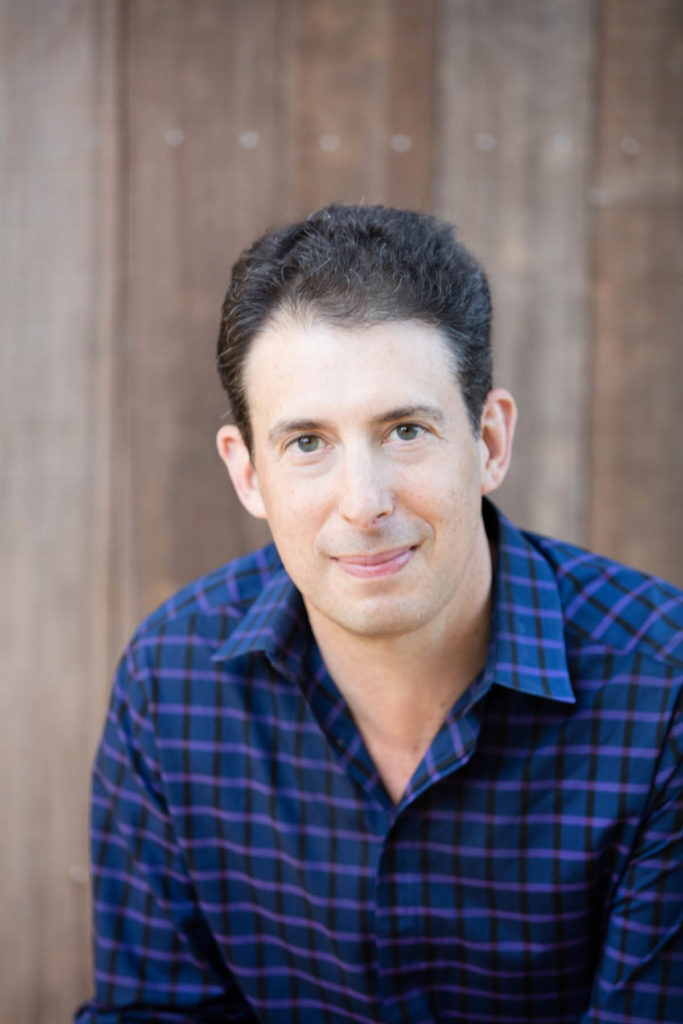
Eric Klinenberg is Helen Gould Shepard Professor of Social Science and Director of the Institute for Public Knowledge at New York University. He is the author of Palaces for the People: How Social Infrastructure Can Help Fight Inequality, Polarization, and the Decline of Civic Life (Crown, 2018), Going Solo: The Extraordinary Rise and Surprising Appeal of Living Alone (The Penguin Press, 2012), Fighting for Air: The Battle to Control America’s Media (Metropolitan Books, 2007), and Heat Wave: A Social Autopsy of Disaster in Chicago (University of Chicago Press, 2002), as well as the editor of Cultural Production in a Digital Age , co-editor of Antidemocracy in America (Columbia University Press, 2019), and co-author, with Aziz Ansari, of the New York Times #1 bestseller Modern Romance (The Penguin Press, 2015). His scholarly work has been published in journals including the American Sociological Review, Theory and Society, and Ethnography, and he has contributed to The New Yorker, The New York Times Magazine, The New York Review of Books, and This American Life. He’s currently working on a new book, 2020: A Social Autopsy, to be published by Alfred A. Knopf.
Follow Eric Klinenberg on Twitter .
Andrea Roberts, “The Community Core: Making and Keeping Place Heritage in Texas’s Freedom Colonies”
| Registration Information |
|---|
| The GSD’s Fall 2021 Public Programs are all virtual and require registration.
The event will also be live streamed to the Harvard GSD YouTube page. Only viewers who are attending the lecture via Zoom will be able to submit questions for the Q+A. If you would like to submit questions for the speaker in advance of the event, please click here.
Live captioning will be provided during this event.
|
Event Description
In Texas’ freedom colonies — African American settlements founded 1866-1930 — descendants of community founders engage in heritage conservation by keeping folklife, sacred rituals, and other cultural expressions that sustain communities’ Black sense of place. However, rural, vernacular African American placekeeping strategies are rarely framed in planning and architectural history as transgressive or expressions of Black liberation. Presenting an excerpt from her forthcoming book, Never Sell the Land, Dr. Roberts shares case studies in which descendants of Deep East Texas freedom colony founders leverage heritage conservation to revitalize community cores. In contrast with urban cores defined by density and transit, the author conceptualizes freedom colony cores as embodied, rhizomatic, and dynamic. Placekeeping descendants, who live simultaneously in urban and rural Black settlements, act as interstices between freedom colony full and part-time residents, contest local land-use decisions, and rehabilitate properties. Heritage conservation activities sustain the diaspora of descendants’ commitment to and financial support of homestead rehabilitation, land retention, and adaptive reuse of a segregation-era school. The author will share ways freedom colony descendants co-opt, subvert, and reinvent community cores to resist placelessness and create “free Black space.”
Following Dr. Roberts’ presentation, she will be joined by current Loeb Fellow, Monica Rhodes for a discussion.
Speakers
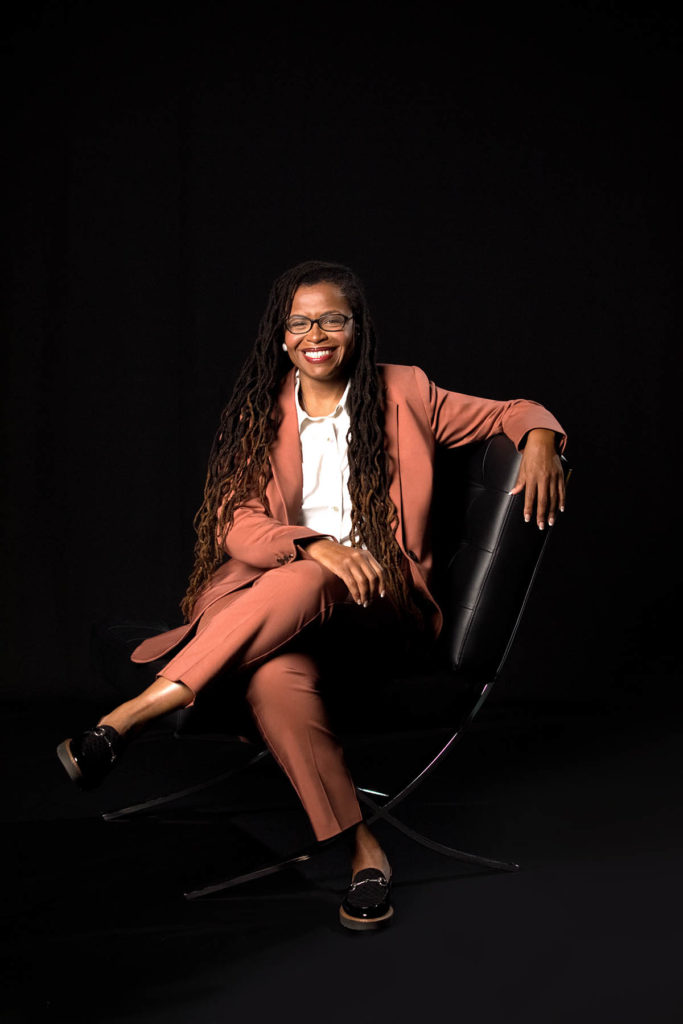
Dr. Andrea Roberts is Director of The Texas Freedom Colonies Project™ and an Assistant Professor of Urban Planning, and co-founder of the African American Digital Humanities Working Group at Texas A&M University (TAMU). She is also a fellow with TAMU’s Hazard Reduction and Recovery Center , Center for Heritage Conservation , Institute for Sustainable Communities , and the Africana Studies Program. Dr. Roberts holds a Ph.D. in community and regional planning from The University of Texas at Austin (2016), where her specialization areas were African diaspora studies and historic preservation. She also holds an M.A. in government administration from the University of Pennsylvania (2006) and a B.A. in political science from Vassar College (1996). Her 12 years of nonprofit management, community development, and government administration experience inform her efforts to move disappearing African American communities — facing sprawl, gentrification, and resource extraction — from the margin to the center of public discourse, pedagogy, and research.
Her research frames planning & historic preservation practices as avenues to social justice. Her scholarship and digital humanities platforms tell the story of freedom colonies, African American settlements founded after Juneteenth in Texas between 1865-1930. The Journal of Planning History, Buildings and Landscapes, the Journal of the American Planning Association, the Journal of Community Archaeology and Heritage, Planning Theory & Practice, and Environmental Justice have published her peer-reviewed scholarship on Black planning history, cultural landscape theory, Black feminist preservation, and participatory preservation. Her commentary has also appeared in Newsweek, The Conversation, and the National Trust for Historic Preservation’s Leadership Forum.
She is also a 6th generation Texan, whose ancestors were formerly enslaved and founded freedom colonies. In 2014, she founded The Texas Freedom Colonies Project. The Project’s student researchers, volunteers, and the freedom colony diaspora contribute to The TXFCP Atlas , a publicly accessible map and database containing descendants’ memories, images, and reports on contemporary life in nearly 400 settlements. The Texas Department of Transportation and the Council of Texas Archeologists use the platform to identify Black historic resources at risk.
Dr. Roberts is also the Consultant/Owner of Freedom Colonies Project, LLC, which provides research design support and DEIA workshops for preservation organizations. She is a Texas State Board of Review member and a National Monument Audit Advisory Board member. She has received awards for her engaged scholarship from The Vernacular Architecture Forum and the Urban Affairs Association. Dr. Roberts is a 2020-21 Whiting Public Engagement Fellow and was a 2020 Visiting Scholar at Yale’s Gilder Lehrman Center for the Study of Slavery, Resistance, Abolition. Currently, she’s writing a book about Black historic preservation practice for The University of Texas Press.
Follow Dr. Andrea Roberts on Twitter and and follow the Texas Freedom Colonies Project on Facebook .
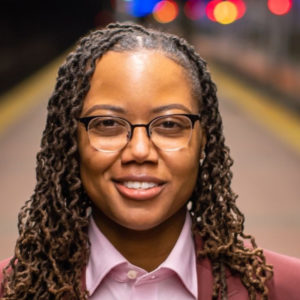
Monica Rhodes is the former director of Resource Management at the National Park Foundation. In this role, Rhodes oversaw facility and construction grant-making to the National Park Service and helped lead efforts to develop strategies for African American and Latinx engagement.
Prior to her role at NPF, Rhodes was the founding director of the National Trust’s HOPE (Hands-On Preservation Experience) Crew, which was created to expand the preservation movement to a younger, more diverse audience. In the five years of leading HOPE Crew, Rhodes guided over 165 preservation construction projects, trained 750 young people and veterans, and engaged 3700 volunteers in large-scale community events. Under her leadership, the program garnered more than 1 billion media impressions and supported $18 million of preservation work, primarily in national parks. Before joining the Trust, Rhodes worked as a consultant to preservation non-profits.
Rhodes’ work has been featured in national outlets like PBS NewsHour, Huffington Post, Washington Post, and U.S. News & World Report. She also appeared in a feature spread on women in the preservation movement in Essence Magazine’s Spring 2018 issue. Separate from her work with NPF, Rhodes served on the Commission for Historical and Architectural Preservation and the Market Center Community Development Corporation board in Baltimore City. She also served as an advisor for the DC LGBTQ Historic Context Study and a project reviewer for the Facilities and Buildings grant program for the DC Commission on the Arts and Humanities.
Rhodes earned her undergraduate degree in History at the University of Tulsa and a Master’s degree in African American Studies at Temple University. She also attended the University of Pennsylvania where she received a Master’s degree in Historic Preservation.
Harvard Design Magazine #49: “Publics” Issue Launch and Conversation
| Registration Information |
|---|
| The GSD’s Fall 2021 Public Programs are all virtual and require registration.
Click here to register for Harvard Design Magazine #49: “Publics” Issue Launch and Conversation. The event will also be live streamed to the GSD’s YouTube page. Only viewers who are attending the lecture via Zoom will be able to submit questions for the Q+A. If you would like to submit questions for the speakers in advance of the event, please click here.
Live captioning will be provided during this event.
|
Event Description
In a world of increasing polarization and boundary-drawing manifest at multiple scales, what has happened to the notion of “the public”? Is there evidence that collective understanding of who belongs in our neighborhoods, cities, regions, and nations is changing? And to what extent have the urban planning and design professions enabled or constrained these transformations? The 49th issue of Harvard Design Magazine , guest-edited by Anita Berrizbeitia and Diane Davis, addresses “the status of the public” in political and social discourse, in design thinking and practice, and in the built environment itself. We ask leading public intellectuals, scholars, and practitioners in architecture, urban planning, landscape design, law, and the social sciences and humanities to join us in pondering the fate of the public in a world where challenges to collective responsibility and xenophobic thinking are becoming ever more dominant.
The event will be introduced by Harvard Design Magazine’s Editorial Director, Julie Cirelli.
Speakers
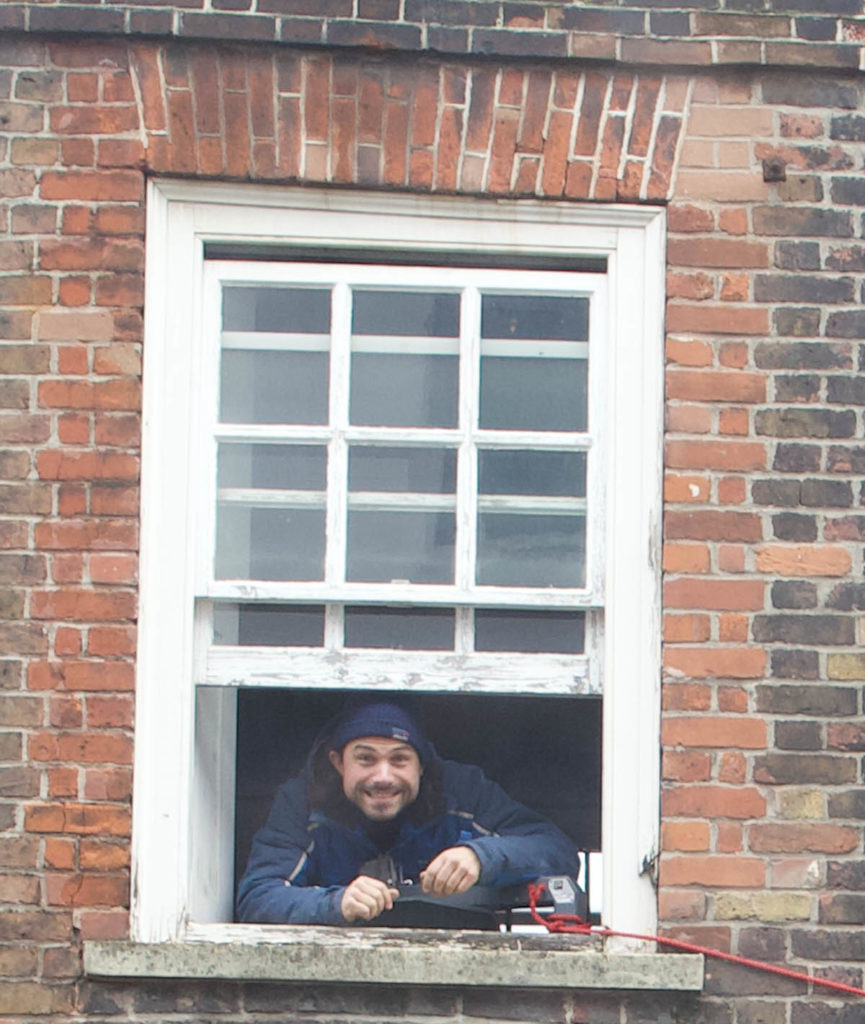
Assemble is a multi-disciplinary collective working across built environment disciplines, including architecture, research, design, and public art. Founded in 2010 to undertake a single self-built project, Assemble has since delivered a diverse and award-winning body of work, whilst retaining a democratic and co-operative working method that enables built, social and research-based work at a variety of scales, both making things and making things happen. Members have a broad range of skills and experience covering design, construction, furniture making, fabrication, brief development, urban and public realm design, organizational development, making, audio production, events programming and production, performance, carpentry, ceramics, product development, set design and theatre-making.
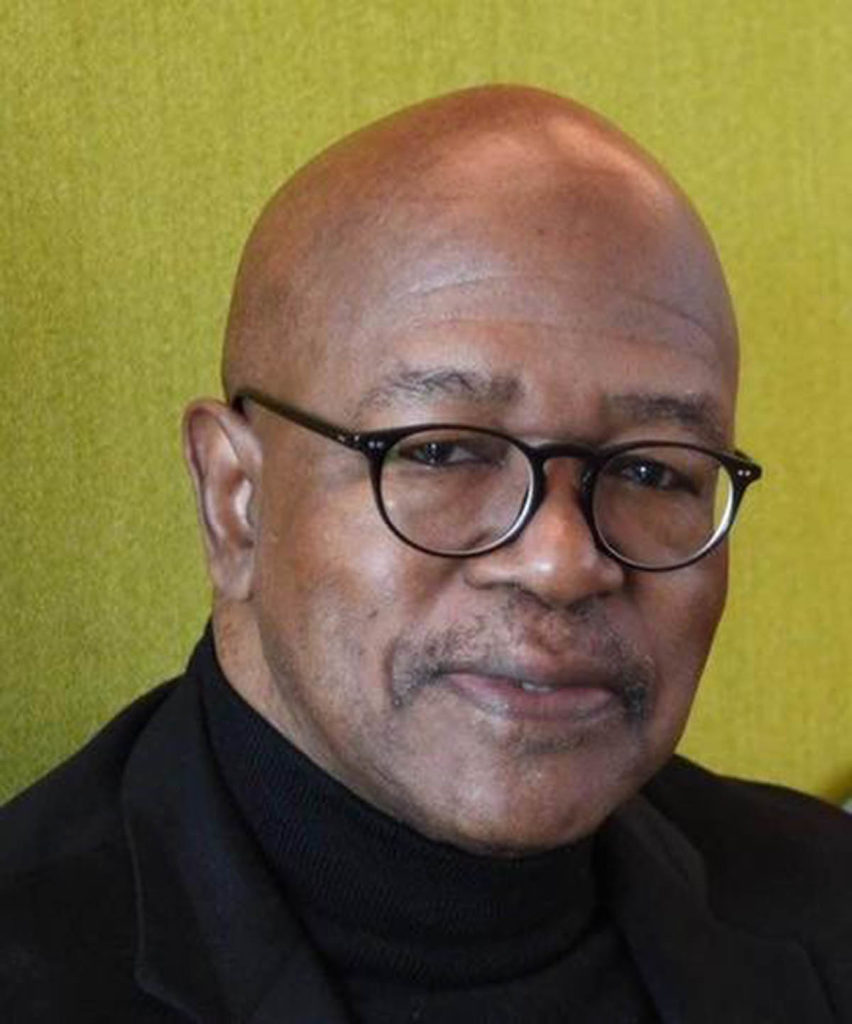
Elijah Anderson is the Sterling Professor of Sociology and of African American Studies at Yale University, and one of the leading urban ethnographers in the United States. He is the author of the classic sociological work, A Place on the Corner (1978; 2nd ed., 2003); and the award-winning books, Streetwise (1990) and Code of the Street (1999); and The Cosmopolitan Canopy (2011). Dr. Anderson is the recipient of the 2017 Merit Award from the Eastern Sociological Society, the 2013 Cox-Johnson-Frazier Award, and the 2018 W.E.B. DuBois Career of Distinguished Scholarship Award, both from the American Sociological Association.
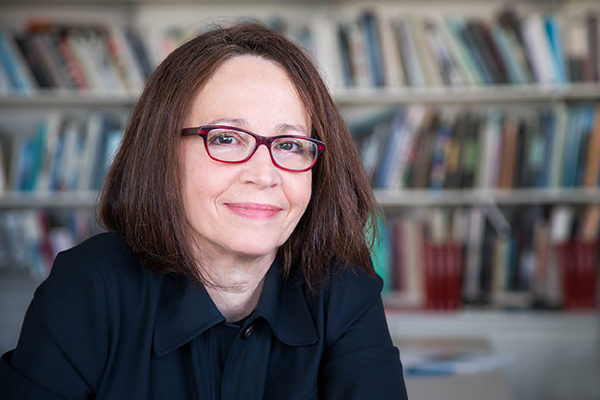
Anita Berrizbeitia is Professor of Landscape Architecture and Chair of the Department of Landscape Architecture. Her research focuses on design theories of modern and contemporary landscape architecture, the productive aspects of landscapes, and Latin American cities and landscapes. She was awarded the 2005/2006 Prince Charitable Trusts Rome Prize Fellowship in Landscape Architecture. A native of Caracas, Venezuela, she studied architecture at the Universidad Simon Bolivar before receiving a BA from Wellesley College and an MLA from the GSD. Read More
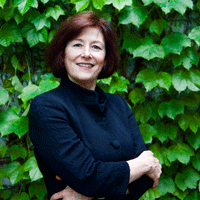
Diane E. Davis is the Charles Dyer Norton Professor of Regional Planning and Urbanism at Harvard’s Graduate School of Design. Before moving to the GSD in 2011, Davis served as the head of the International Development Group in the Department of Urban Studies and Planning at MIT, where she also had a term as Associate Dean of the School of Architecture and Planning. Trained as a sociologist, Davis’s research interests include the relations between urbanization and national development, comparative urban governance, socio-spatial practice in conflict cities, urban violence, and new territorial manifestations of sovereignty. Her books include Transforming Urban Transport (with Alan Altshuler) (Oxford University Press, 2018), Cities and Sovereignty: Identity Conflicts in the Urban Realm (Indiana University Press, 2011), Discipline and Development: Middle Classes and Prosperity in East Asia and Latin America (Cambridge University Press, 2004; named the ASA’s 2005 Best Book in Political Sociology), Irregular Armed Forces and their Role in Politics and State Formation (Cambridge University Press, 2003), Urban Leviathan: Mexico City in the Twentieth Century (Temple University Press 1994; Spanish translation 1999). Read More
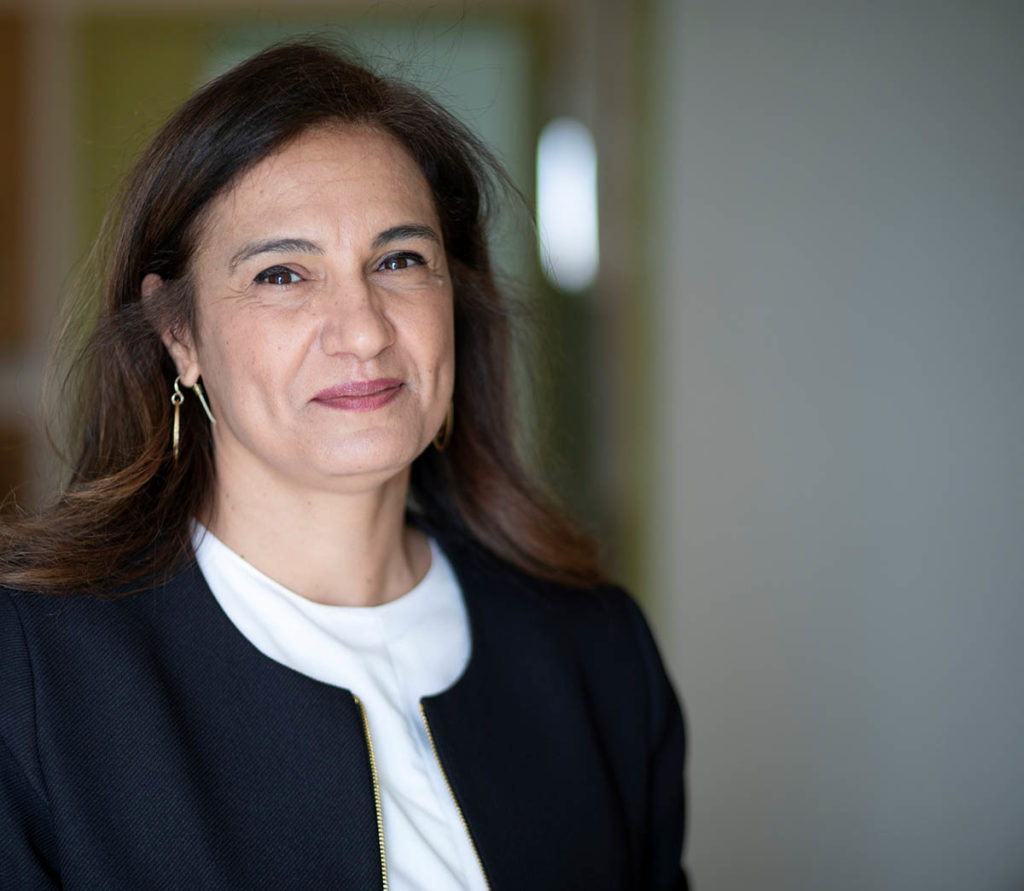
Tali Hatuka an architect and urban planner, is a Professor of Urban Planning and the head of the Laboratory of Contemporary Urban Design, at Tel Aviv University . Her work is focused primarily on two fields: urban society and city design and development. Hatuka is the author and co-author of the books: The Design of Protest , Violent Acts and Urban Space in Contemporary Tel Aviv , The Factory, State-Neighborhood, The Planners, City-Industry and Land- Gardens. She also works as a city planner and urban designer, consulting with municipalities in Israel. Hatuka has received many awards, including being a Fulbright Scholar and a Marie Curie Scholar at MIT. She holds academic degrees from the Technion in Israel and Heriot-Watt University in the UK.
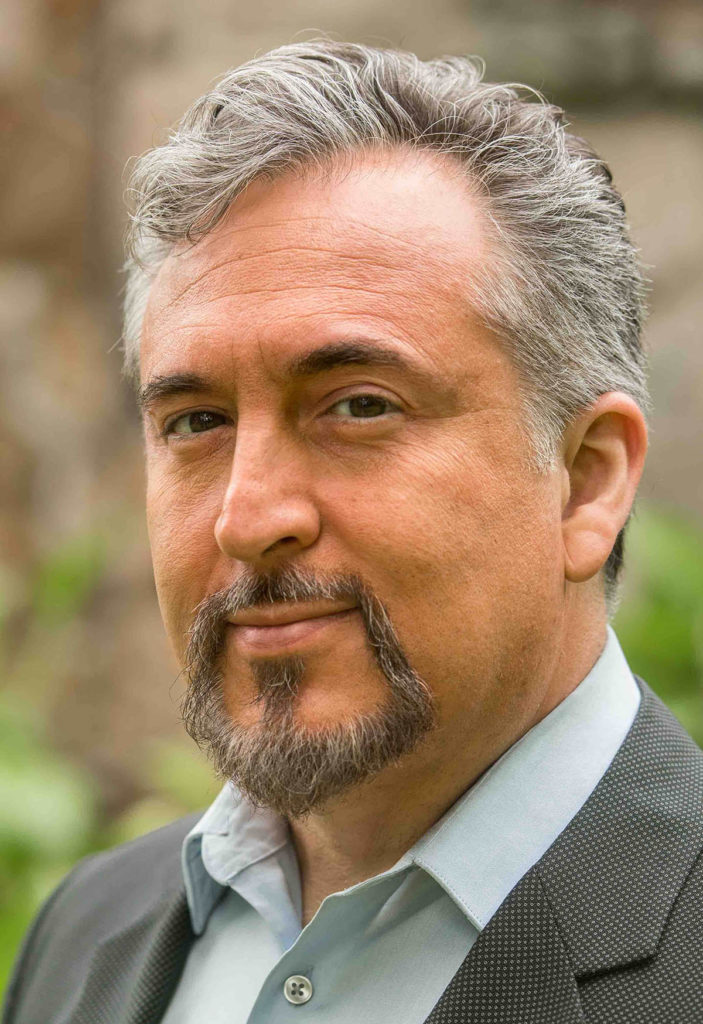
A. K. Sandoval-Strausz is director of the Latina/o Studies Program and associate professor of history at Penn State University. His books include Barrio America: How Latino Immigrants Saved the American City, which won the Caroline Bancroft History Prize and was a finalist for the Victor Villaseñor Book Award; Hotel: An American History ; and Making Cities Global: The Transnational Turn in Urban History .
Jamaica Kincaid
| Registration Information |
|---|
| The GSD’s Fall 2021 Public Programs are all virtual and require registration.
Click here to register for Frederick Law Olmsted Lecture: Jamaica Kincaid. The event will also be live streamed to the Harvard GSD YouTube page. Only viewers who are attending the lecture via Zoom will be able to submit questions for the Q+A. If you would like to submit questions for the speaker in advance of the event, please click here.
Live captioning will be provided during this event.
|
Speaker
Jamaica Kincaid is a widely acclaimed and fiercely original writer known for her novels, short stories, and essays, including writings on her life as a gardener. She was also staff writer for the New Yorker from 1973 to 1996 and has been a contributor for the Village Voice.
She is beloved by generations of readers who discovered her fiction, including Annie John and “Girl,” in high school and is admired by critics for her daring and unorthodox body of work. Answering claims that her fiction and essays are characterized by anger, Kincaid says, “The important thing isn’t whether I’m angry. The more important thing is, is it true? Do these things really happen? I think I’m saying something true. I’m not angry … The way I think of it is that I’m telling the truth.”
In the New York Review of Books, Darryl Pinckney wrote, “Kincaid’s rhythms and the circularity of her thought patterns in language bring Gertrude Stein to mind. She is an eccentric and altogether impressive descendant.”
Kincaid is the recipient of a Guggenheim grant and has been nominated for the National Book Award. She was elected to the American Academy of Arts and Letters in 2004 and the American Academy of Arts and Sciences in 2009.
Kincaid was born in Antigua, British West Indies, in 1949, and arrived in the United States in 1965 to work as an au pair. In 1973, she changed her name from Elaine Cynthia Potter Richardson to Jamaica Kincaid, mostly to prevent her parents from finding out that she was writing. She’s now the mother of two grown children and is a professor in the African and African American Studies department at Harvard University.
Loeb Lecture: Reginald Dwayne Betts, “Felon: A play; A discourse”
| Registration Information |
|---|
| The GSD’s Fall 2021 Public Programs are all virtual and require registration. Click here to register for Loeb Lecture: Reginald Dwayne Betts, “Felon: A play; A discourse” The event will also be live streamed to the Harvard GSD YouTube page. Only viewers who are attending the lecture via Zoom will be able to submit questions for the Q+A. If you would like to submit questions for the speaker in advance of the event, please click here. Live captioning will be provided during this event. |
Event Description
Paper, perhaps surprisingly, is a key part of the prison experience. Paper gets you in and sometimes gets you free. Chasing paper on the front is the catalyst to cuffs for many; making papers — that is, parole — is the hope of freedom for others. Inside, letters from family are lifelines, earning the slang moniker “kite” and there is an edge of exhilaration when a kite is slipped into a cell by a guard during mail call or under a cell door by another prisoner. For years after my release, I carried around a slip of paper in my wallet. A receipt for twenty-five dollars and seventy-one cent, the last of the money I’d earned working for 45 cent an hour in a Virginia prison. The experience is marked by paper. Transforming the paper into art complexifies the experience, makes it more than loss, more than the account for crimes and prison time that seem to stalk.
Felon: An America Washi Tale is about re-imagining paper. A solo performance that begins with the pages of a book being slid into a cell, traverses stoves made of toilet paper, kites from a father, handwritten affidavits, legal complaints, handmade paper, certificates of pardon, & a 1,000 squares fashioned from the clothing of men serving life sentences, the variety of papers that reveals what is possible and burdened by prison. Here, I weave traditional theater, poetry, fine art, and Japanese paper making aesthetic principles into a meditation on my own experiences of incarceration and my legal work to free friends that are still in prison. This reflection on the challenges of living in the shadow of mass incarceration is a story of violence, love, and fatherhood. The set is a collaboration created by Kyoko Ibe from “prison paper” that Ruth Lignen constructed from the clothes of men I first met in prison, each of whom were still in prison during the earliest stages of this project. Directed by Elisa Theron, this Washi Tale moves literally and metaphorically beyond my own life, unwrapping the disturbing ways that prison touches us all.
Purchase the book Felon from the Harvard Bookstore .
Speaker
In October 2018, The New York Times Magazine published Reginald Dwayne Betts ’ long essay “Getting Out.” Several months later, the piece was awarded a National Magazine Award. The publication was another example of Betts entering into a new genre and bringing the same depth and richness of self-reflection and exploration of the central problem on this generation: incarceration and its effects on families and communities.
Betts transformed himself from a sixteen-year old kid sentenced to nine-years in prison to a critically acclaimed writer and graduate of the Yale Law School. He has written two collections of poetry, the recently published and critically acclaimed Bastards of the Reagan Era and Shahid Reads His Own Palm . When he was awarded the PEN New England Award for poetry for his collection, Bastards of the Reagan Era, judge Mark Doty said: “Betts has written an indelible lament for a generation, a necessary book for this American moment.” His memoir, A Question of Freedom: A Memoir of Learning, Survival, and Coming of Age in Prison , is the story of a young man confined in the worst prisons in the state of Virginia, where solitary confinement, horrific conditions, and the constant violence threatened to break his humanity. Instead, Betts used the time to turn himself into a poet, a scholar, and an advocate for the reform of the criminal justice system.
Betts’ latest collection of poetry, Felon , interrogates and challenges our notions of justice. Longtime New York Times critic, Michiko Kukatani calls Betts’ work both “haunting and harrowing.” A recent collaboration with visual artist Titus Kaphar lead to The Redaction , an exhibition of prints at MoMA PS1. Drawing inspiration and source material from lawsuits filed by the Civil Rights Corps on behalf of people incarcerated because of an inability to pay court fines and fees, The Redaction features poetry by Betts in combination with Kaphar’s etched portraits of incarcerated individuals. Together, Betts’ poems and Kaphar’s printed portraits blend the voices of poet and artist with those of the plaintiffs and prosecutors, reclaiming these lost narratives and drawing attention to some of the many individuals whose lives have been impacted by mass incarceration.
A widely requested speaker, Betts often gives talks about his own experience, detailing his trek from incarceration to Yale Law School and the role that grit, perseverance, and literature played in his success. In addition, he has given lectures on topics ranging from mass incarceration to contemporary poetry and the intersection of literature and advocacy. Betts has given commencement speeches at Quinnipiac University and Warren Wilson College and has lectured widely at universities and conferences, including Harvard Law School, Yale Law School, the University of Maryland, the Beyond the Bench conference, and a wide range of organizations across the country.
Between his work in public defense, his years of advocacy, and Betts’ own experiences as a teenager in maximum security prisons, he is uniquely positioned to speak to the failures of the current criminal justice system and presents encouraging ideas for change. As a result of that work, President Barack Obama appointed Betts to the Coordinating Council of the Office of Juvenile Justice and Delinquency Prevention and, more recently, Governor Ned Lamont of Connecticut appointed him to the Criminal Justice Commission, the state body responsible for hiring prosecutors in Connecticut.
Named a 2018 Guggenheim Fellow and a 2018 NEA Fellow, Betts’ poetry has long been praised. His writing has generated national attention and earned him a Soros Justice Fellowship, a Radcliffe Fellowship, a Ruth Lily Fellowship, an NAACP Image Award, and New America Fellowship. Betts has been featured in The New York Times, The New Yorker, and The Washington Post, as well as being interviewed on NPR’s Fresh Air, The Travis Smiley Show and several other national shows. He holds a B.A. from the University of Maryland; an M.F.A. from Warren Wilson College, where he was a Holden Fellow; and a J.D. from Yale Law School, where he was awarded the Israel H. Perez Prize for best student note or comment appearing in the Yale Law Journal. He is a Ph. D. in Law candidate at Yale and, as a Liman Fellow, he spent a year representing clients in the New Haven Public Defender’s Office.
Follow Reginald Dwayne Betts on Twitter .
Zoe Leonard with José Esparza Chong Cuy
| Registration Information |
|---|
| The GSD’s Fall 2021 Public Programs are all virtual and require registration. Click here to register for Rouse Visiting Artist Lecture: Zoe Leonard with José Esparza Chong Cuy. The event will also be live streamed to the Harvard GSD YouTube page. Only viewers who are attending the lecture via Zoom will be able to submit questions for the Q+A. If you would like to submit questions for the speakers in advance of the event, please click here. Live captioning will be provided during this event. |
Event Description
The artist Zoe Leonard will present a work in progress titled Al Rio/To the River and will engage in conversation about the project with curator José Esparza Chong Cuy.
Al Rio/To the River is a large-scale photographic project centered on the Rio Grande/Rio Bravo, in particular the 1,200-mile section of the river that is used to demarcate the international boundary between Mexico and the United States. Begun in 2016 and currently still a work in progress, the work engages in a sustained observation of the water, surrounding landscape, and built environment, including the towns, cities, factories, and infrastructure projects—dams, levees, bridges, irrigation trenches, pipelines, fences, gates, border checkpoints, and detention facilities—built alongside, over, and through the riverbed. Viewed from multiple vantage points, the river is considered as a natural feature, a water resource, a political border, and an inhabited region. The project considers layered histories, complex relationships, and the interconnectedness of life on both sides of the watershed.
The completed work will be exhibited at Mudam, Luxembourg, and Musée d’Art Moderne de la Ville de Paris in 2022, with an accompanying publication.
Speakers
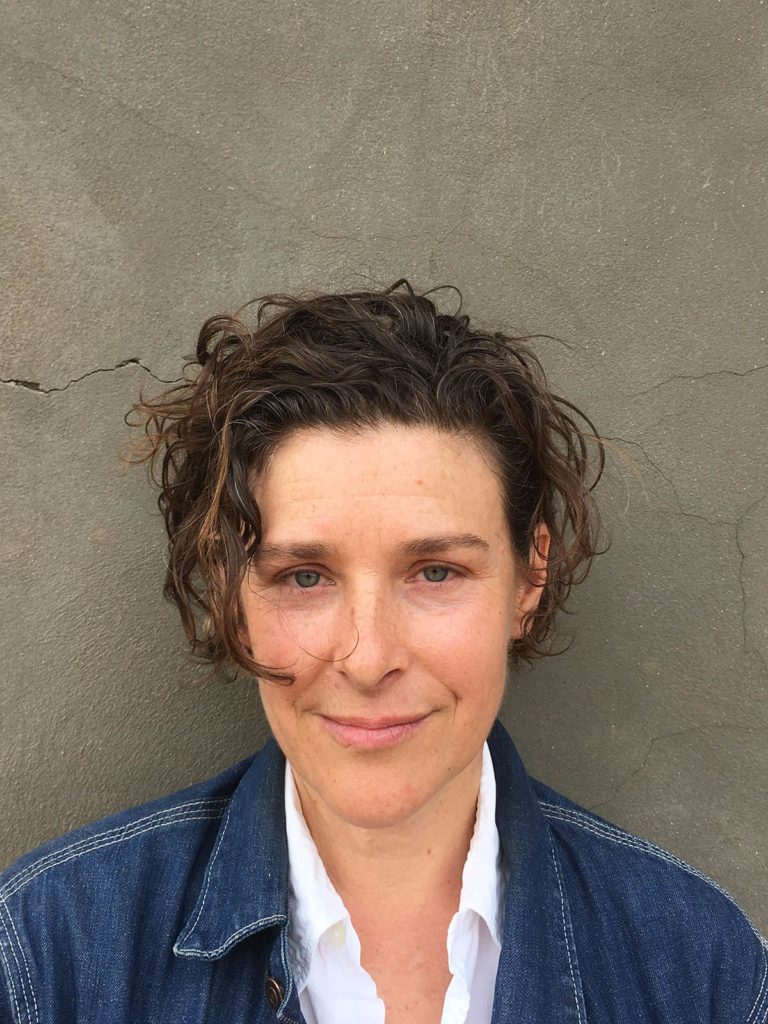
New York-based artist Zoe Leonard balances rigorous conceptualism with a distinctly personal vision in her work, which merges photography, sculpture, and installation. By employing strategies of repetition, shifting perspectives, and a multitude of printing processes, Leonard’s practice probes the politics of representation and display. Leonard explores themes such as gender and sexuality, loss and mourning, migration, displacement, and the urban landscape. Her photography specifically invites us to contemplate the role that the medium plays in constructing history, and to consider the roots of contemporary photographic culture. More than its focus on any particular subject, however, Leonard’s work encourages the viewer to reconsider the act of looking itself, drawing attention to observation as a complex, ongoing process.
Leonard has exhibited extensively since the late 1980s, including solo exhibitions at the Whitney Museum of American Art, New York (2018), Museum of Modern Art, New York (2015), Chinati Foundation, Marfa, Texas (2013-14); Camden Arts Centre, London (2012); Museum Moderner Kunst Stifting Ludwig, Vienna (2009), Pinakothek der Moderne, Munich (2009); Reina Sofia, Madrid (2008), Dia: Beacon (2008); The Wexner Center for the Arts, Columbus, Ohio (2007); Fotomuseum Wintherthur (2007); Philadelphia Museum of Art (1998); Kunsthalle Basel (1997); Secession, Vienna (1997), and The Renaissance Society, Chicago (1993). Group exhibitions include Documenta IX (1992), Documenta XII (2007), and Whitney Biennials in 1993, 1997 and 2014. Publications include Analogue (2007), Zoe Leonard: Photographs (2008), You see I am here after all (2010), Available Light(2014), and Survey (2018).
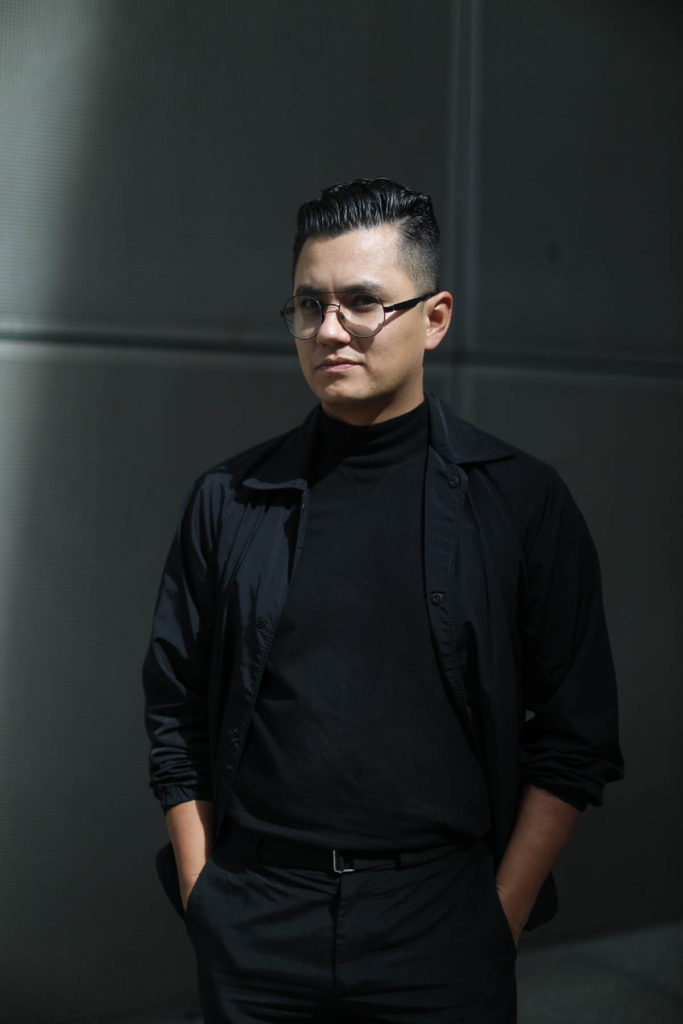
José Esparza Chong Cuy is the newly arrived Executive Director and Chief Curator of Storefront for Art and Architecture
. At Storefront, José introduced a new curatorial framework called Building Cycles, which presents a year-long program of exhibitions and events that explores the notion of building as both place and process, laying the groundwork for new ways of making spaces, places, and relationships with and within our surroundings.
Before his role at Storefront, José served as the Pamela Alper Associate Curator at the Museum of Contemporary Art Chicago (MCA), which he joined in 2016. At the MCA, he co-organized a major collection exhibition to celebrate the museum’s 50th anniversary and curated solo shows of Tania Pérez Córdova and Mika Horibuchi, as well as a major commission with Federico Herrero. With MCA, José also recently oversaw a solo exhibition of Jonathas de Andrade, a collection show of recent acquisitions, and a large-scale retrospective on the life and work of Lina Bo Bardi, co-organized with the Museu de arte de São Paulo and the Museo Jumex in Mexico City.
Prior to the MCA, José was Associate Curator at the Museo Jumex. From 2007-2012 he lived in New York and held positions as Curatorial Associate at Storefront for Art and Architecture, Research Fellow at the New Museum for Contemporary Art, and contributing editor at Domus magazine. In 2013 he was Co-Curator of the Lisbon Architecture Triennial, titled Close, Closer. He is a graduate of Columbia University’s M.S. in Critical, Curatorial, and Conceptual Practices in Architecture.
